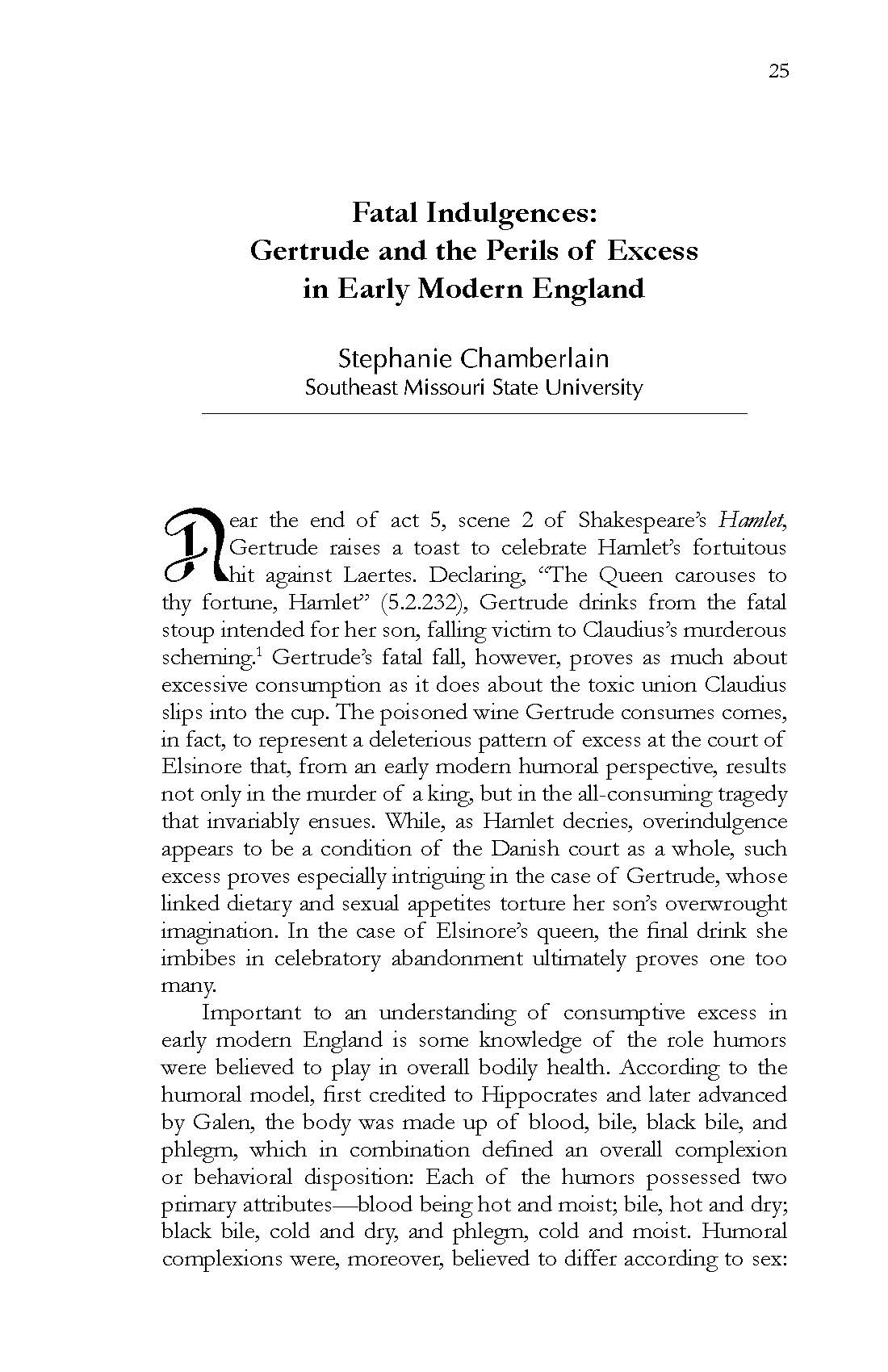Fatal Indulgences: Gertrude and the Perils of Excess in Early Modern England
Main Article Content
Abstract
Near the end of act 5, scene 2 of Shakespeare’s Hamlet, Gertrude raises a toast to celebrate Hamlet’s fortuitous hit against Laertes. Declaring, “The Queen carouses to thy fortune, Hamlet” (5.2.232), Gertrude drinks from the fatal stoup intended for her son, falling victim to Claudius’s murderous scheming.1 Gertrude’s fatal fall, however, proves as much about excessive consumption as it does about the toxic union Claudius slips into the cup. The poisoned wine Gertrude consumes comes, in fact, to represent a deleterious pattern of excess at the court of Elsinore that, from an early modern humoral perspective, results not only in the murder of a king, but in the all-consuming tragedy that invariably ensues. While, as Hamlet decries, overindulgence appears to be a condition of the Danish court as a whole, such excess proves especially intriguing in the case of Gertrude, whose linked dietary and sexual appetites torture her son’s overwrought imagination. In the case of Elsinore’s queen, the final drink she imbibes in celebratory abandonment ultimately proves one too many.
